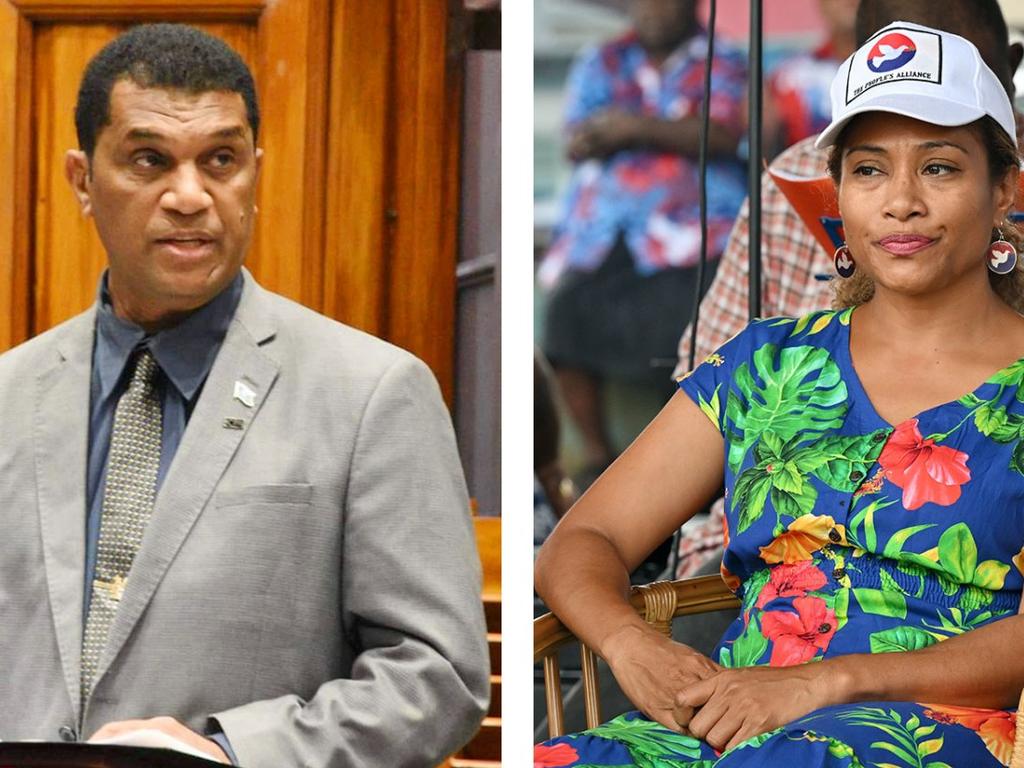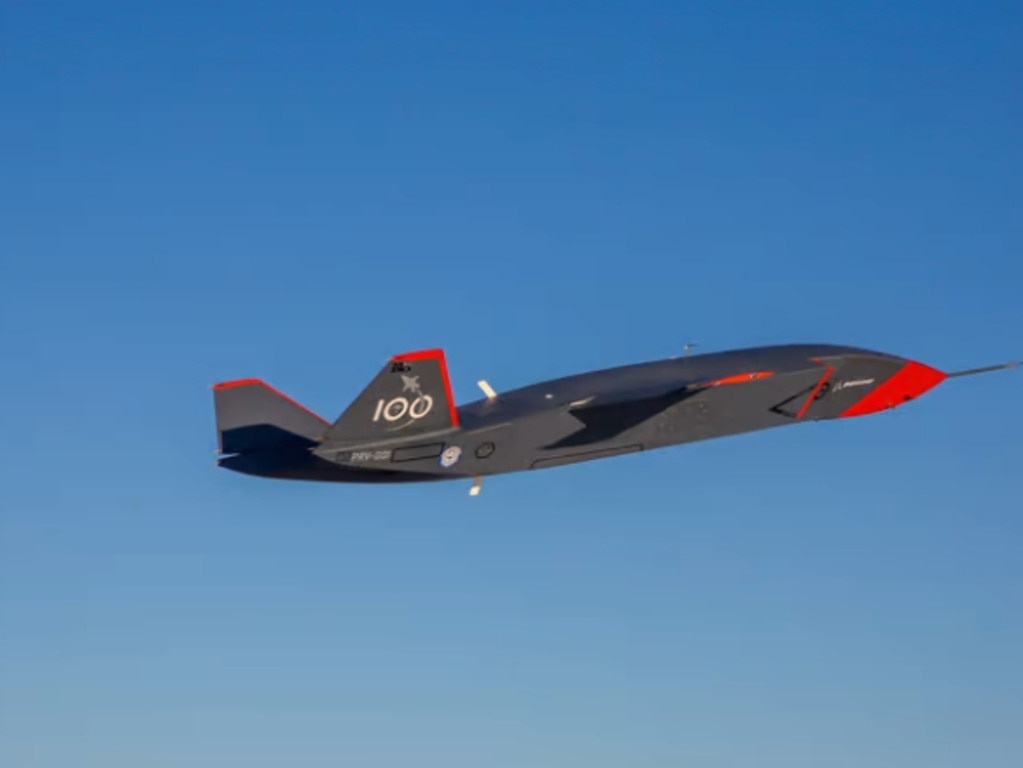Accused Fijian torturer Colonel Penioni (Ben) Naliva to command ADF troops
A Fijian military officer allegedly responsible for human rights abuses and torture has been appointed as deputy commander of the Australian Army’s 7th Brigade.

A senior Fijian military officer allegedly responsible for human rights abuses and torture has been appointed as deputy commander of the Australian Army’s 7th Brigade, amid claims the Australian government has turned a blind eye in its bid to counter Chinese influence in the Pacific.
Colonel Penioni (Ben) Naliva, a one-time right-hand man to former Fiji coup leader and prime minister Frank Bainimarama, is alleged to have been involved in the violent beating of two Fijian politicians, with one victim claiming the soldier tried to force an M16 rifle barrel into his anus during an interrogation.
In another case, the UN Special Rapporteur named then-major Naliva, in a report to the Human Rights Council, as being involved in the savage beating of a Suva businessman that left him unable to walk.
In a third case, a prominent youth activist says Naliva was present when he was detained and tortured in 2006, and did nothing to stop it.
At least two of his alleged victims have told The Australian of their horror at learning the man they say tortured them has been appointed by the Australian government to such an esteemed position.
Several sources in Fiji have speculated to The Australian that Colonel Naliva’s appointment was approved by current prime minister Sitiveni Rabuka because of concern that the soldier – still reputedly a Bainimarama loyalist – was the military officer most able to stage a coup against his already unstable government.
Announcing the appointment on Facebook last week, the 7th Brigade welcomed Colonel Naliva, posting pictures of its new deputy commander sitting with dozens of Australian soldiers as he “got to meet his new colleagues”.
“This international military partnership has been planned for a long time, and it’s brilliant to see it begin,” the 7th Brigade post said.
Australia has committed to grow its defence and security cooperation with Fiji under the Vuvale Partnership agreement signed last October, with increasing co-deployments between the Australian Defence Force and the Republic of Fiji Military Forces.

The appointment, which puts Colonel Naliva second in command of about 3500 Australian troops, came after he graduated from the Australian War College last year. But following inquiries from The Australian about the abuse allegations, Defence is understood to be working with the Fijian government to determine “appropriate next steps”.
A Defence spokesperson would only say: “Defence is aware of reporting regarding Colonel Penioni Naliva. Defence takes any allegations of wrongdoing seriously.”
Colonel Naliva has not been charged over any of the allegations and The Australian is not suggesting they are true, only that they have been made and are now the subject of inquiry by the Australian government.
In 2011 Colonel Naliva was alleged to have beaten up former Fijian cabinet minister Samisoni Speight Tikoiniasau – the elder, brother of 2000-coup leader George Speight – so badly he needed hospital treatment in Australia.
In a signed statement, Mr Tikoinasau described how in February 2011 he was taken to Fiji military barracks in Suva and tortured in an attempt to make him reveal the source of a DVD that was critical of the Bainimarama military regime.
Mr Tikoinasau’s account is recorded in a book, Prisoner 302, by deposed Fiji prime minister Laisenia Qarase. He describes how he was repeatedly punched and kicked, his fingers bent back to almost breaking point and how hot water was poured on him.

“An extremely disturbing and humiliating element of the violent treatment that I was receiving was the incident where, as I was on the cement floor lying face down receiving blows to my back and head and my head being stepped on by a boot, the soldier whom I identified as Penioni Naliva was armed with a M16 rifle and I was shocked when I felt the metal barrel of the gun forcing my shorts down from the hip exposing my buttocks and to my horror he attempted to force the point of the gun into my rear end.
“I immediately turned over and asked him what was he trying to do and to which he responded by swearing and confirming his intentions. I struggled to my feet and was further assaulted.”
Mr Tikoinasau was later released with the warning from another soldier that “next time I would be taken out of the camp in a coffin”.
The following day he boarded a plane for Brisbane to escape further arrest and to get medical attention, which he received at Redcliffe Hospital. He had to wear a neck brace as a result of his injuries. Mr Tikoinasau spent several years in Australia and is now believed to live in New Zealand.
In 2011, the UN Special Rapporteur on the protection of freedom of expression, Frank La Rue, named then-major Naliva in a report to the Human Rights Council of the UN general assembly, citing his role in the savage beating of Suva businessman and former politician Benjamin Padarath. After being arrested by the Fiji military in January 2011 the Special Rapporteur said, Mr Padarath was taken to the army barracks, where he was severely beaten and assaulted by military officers and dragged back to his cell.

“Major Ben Naliva was reported to have been identified as one of the officers involved in the assault,” the Special Rapporteur said. “It is reported that Mr Padarath sustained serious injuries: his mouth, nose and ears had been bleeding, his face was swollen, his body was bruised all over and he was unable to walk.
“Only when the doctor at the military hospital told the soldiers escorting Mr Padarath that he might die in custody did they carry him to the bus stop near the QEB military hospital, where he was put on a bench and later collected by his wife.
“We have been told that Mr Padarath had been suffering from severe pain, was scared and refused to go out from his home.”
The Special Rapporteur said the Fiji government had not responded to his communications.
Mr Padarath, who was charged with sedition under the Bainimarama government in 2021, told The Australian this week he found it difficult to believe that Colonel Naliva had been appointed as deputy commander of the 7th Brigade.
“That damn thug belongs in prison in Fiji; he doesn’t deserve to be a deputy commander in your military,” Mr Padarath said.

He said he was suspected of trying to overthrow the government and was beaten on two separate occasions, weeks apart, with Colonel Naliva taking part in both assaults.
Mr Padarath claimed that, as well as being beaten and kicked to the point where he was in and out of consciousness, he had a hot iron pressed to the skin of his thighs, adding that he still bore the scars today.
He said that while many of the soldiers involved in the abuse were wearing balaclavas, Colonel Naliva was not hiding his face.
A student activist, Peter Waqavonovono, has detailed his torture in 2006 when he was picked up by the military and beaten.
“They dragged me to the cricket pitch,” Mr Waqavonovono said. “Here I realised that there were other people lying on that pitch. They kept kicking and punching us, but what I didn’t understand was the stomping on our backs and the demand that we kiss their boots.
“I recall them asking someone near me, if she was pregnant – I am certain I heard a yes. That’s when I heard her scream. I tried to stand up, but was pinned down and told to stay down. A soldier knelt down and told me that I would be killed that night.”
Mr Waqavonovono told The Australian on Monday that Colonel Naliva was present and did nothing to stop the torture.

“I was under the impression that he and the commander at that time were working together to break our spirits and prevent us from continuing our pro-democracy activism.”
Mr Waqavonovono said he also saw Colonel Naliva in February when he and Mr Padarath’s mother stood outside the Queen Elizabeth Army barracks in Suva trying to obtain his release.
“I saw Mr Naliva moving around that evening, before I heard the shouts for help from Mr Padarath,” he said.
Two weeks later as he stood outside the camp with Mr Speight Tikoinasau’s family trying to negotiate his release, he again saw Colonel Naliva moving around the camp.
“I witnessed soldiers beating up some young boys and I queried why these young men were being subjected to this treatment,” Mr Waqavonovono alleged.
“Naliva walked off the ground where the torture was happening and he ordered some of the men to run out and beat a few of us that were at the gate.
“I am concerned that persons like Naliva are unrepentant and unapologetic … To see that he is appointed to an esteemed position shows that Australia government and today’s RFMF is still keen on glorifying torturers and human rights abusers.”
The founder of watchdog website Fijileaks, Victor Lal, labelled the appointment of Colonel Naliva as “a day that will live in infamy” and described the soldier as “Frank Bainimarama’s master torturer”.

Mr Lal echoed speculation in Fiji that the move was approved by current Mr Rabuka because of concern that Colonel Naliva – long aligned with the previous administration – was the military officer most able to stage a coup against his already unstable government. Moving him to Australia would lessen the risk of that happening, Mr Lal told The Australian.
The Rabuka government has been shaken in recent days by a sex scandal involving a tryst between two cabinet ministers: Minister for Women and Children Lynda Tabuya and Mr Rabuka’s former son-in-law, Aseri Radrodro. Both denied the affair, with Ms Tabuya claiming intimate images she allegedly sent to Mr Radrodro were “fakes”.
Australia’s e-Safety Commissioner ordered the Grubsheet Feejee website to take down the images because “the person in the intimate images … does not consent to their intimate images being posted”.
Mr Rabuka sacked Mr Radrodro, one of three minority-party MPs that provided him the numbers to form government, just over a year ago. Refusing to reinstate him after Mr Radrodro tried to present a “matanigasau”, or traditional apology, Mr Rabuka doubled down on the weekend, stating that the last time Mr Radrodro presented him with a matanigasau was after the man “nearly killed” his daughter.
The University of Tasmania’s Richard Herr, a former director of the Centre for International and Regional Affairs at the University of Fiji, said the scandal’s fallout posed a serious threat to Mr Rabuka’s hold on government.







